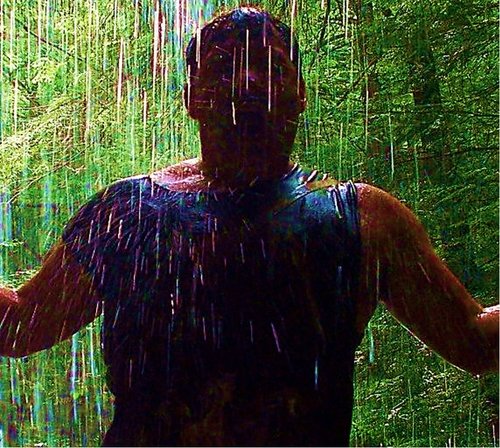MOVIE REVIEWS
 Review by Wuchak
Review by Wuchak
_**An agglomeration of Hemmingway stories with Peck, Hayward and Gardner**_ In the shadow of Mt. Kilimanjaro, a wounded writer (Gregory Peck) deliriously reflects on his past loves & adventures in Paris, the French Riviera and Spain during the Spanish Civil War. “The Snows of Kilimanjaro” (1952) is a melodramatic drama/romance/adventure, the quaint blueprint for future flicks like “Legends of The Fall” (1994). It’s an assemblage of several unrelated Hemmingway stories, including the title one (obviously), as well as his nonfiction book Death in the Afternoon (1932). The Peck character, Harry Street, is basically a fictional version of Hemingway, who was an author/journalist attracted to traveling, adventure, war and women. He was a volunteer ambulance driver in Italy during WW1 where he was wounded by shrapnel in both legs, which is depicted in the well done “In Love and War” (1996). As a journalist, he was in Spain during much of the Spanish Civil War (1936-1939), hunted on safaris in Africa and was fascinated by bullfighting in Spain & Mexico. Harry Street comes across as a self-absorbed drama queen who treats gorgeous women dubiously. But the African scenery helps assuage some of the monotony, like the hippos on the river, but the rhinoceros killing is painful to watch because I hate the unnecessary killing of animals, especially mighty ones who could easily kick the hunter’s axx if he didn’t have a rifle. If you’re not in the right mode, this can be a ponderously episodic bore. But it’s rescued by featuring two of Hollywood's most beautiful ladies, Susan Hayward and Ava Gardner, not to mention Hildegard Knef. Susan’s pal, Hedy Lamarr, was originally offered the role Ava eventually took. The film runs 1 hour, 54 minutes and was shot in Nairobi, Kenya; Cairo, Egypt; and the French Riviera; as well as 20th Century Fox Studios, Century City, Los Angeles. GRADE: B-/C+
 Review by CinemaSerf
Review by CinemaSerf
Gregory Peck is "Harry Street", a successful writer confined to bed on an African hunting trip after an accident. Drifting in and out of lucidity, and tended by wife "Helen" (Rita Hayward) he reflects on his life and loves. Much of his recollection focusses on "Cynthia" (Ava Gardner), the woman he loved but lost to his determination to be a successful author and to the Spanish Civil War. The author feels his life somewhat empty, worthless even, but can the efforts of his wife with all of her devotion bring him to his senses? The story is an amalgam of two Hemingway stories that knit together nicely, the photography does justice to the settings - grand Kenyan wilderness to Parisian scenes and it has a pleasing Bernard Herrmann score that adds much richness to the whole look. The retrospective, episodic, style of narrative doesn't' help the pace of the story though. At times it drags, and the acting seems oddly sterile for a story that is so essentially visceral. Even at his most impassioned, Peck struggled with parts that required him to demonstrate any sort of emotion; and even with two of cinema's most noted experts in that field working with him here, it still struggles to catch fire. There is some action around the Civil War scenarios, but mostly this is a fairly faithful representation of the books delivering a modestly engaging introspection from a man who's led an interesting life.